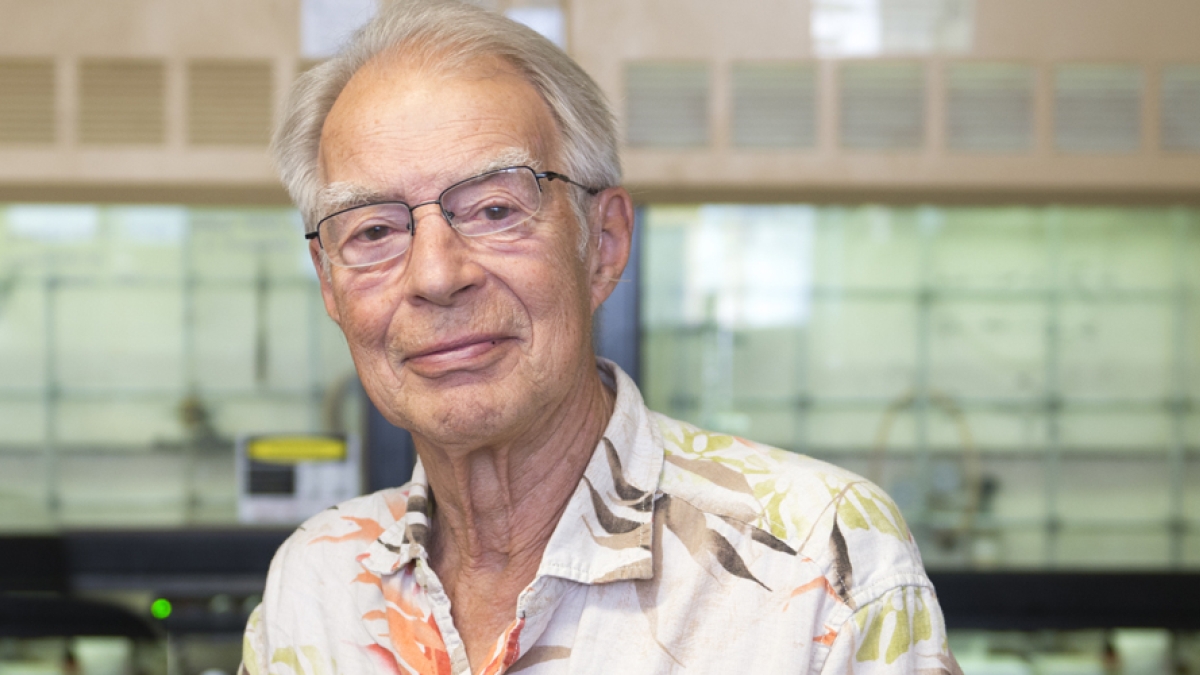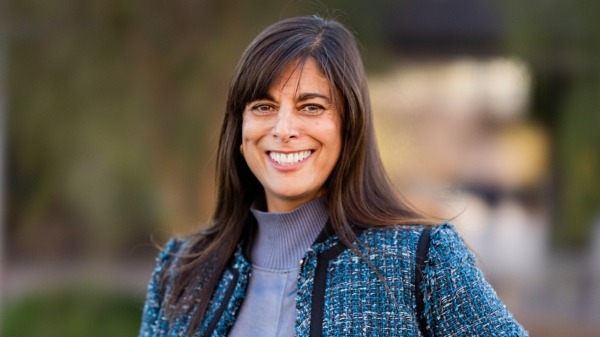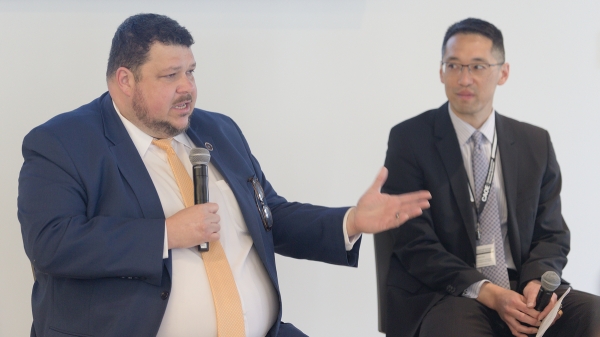Regents' Professor receives Otto Shott Research Award

Professor C. Austen Angell of the School of Molecular Sciences.
Arizona State University School of Molecular Sciences Regents’ Professor of chemistry and biochemistry C. Austen Angell has received the Otto Schott Research Award and an endowment with a unanimous vote from the board of trustees for his impressive work on dynamics and processes in liquids.
“Professor Angell has managed to remain constantly active and visible as a researcher,” explained Kathleen Richardson, member of the board of trustees of the 15th Otto Schott Research Award.
In the areas of physical chemistry and glass science, Angell’s contributions are best represented in his more than 500 numerous publications, many of them single-author, that have now been cited a total of 60,000 timesGoogle Scholar citations., including 17,500 times in the last five years.
Within the glass community, Angell’s interpretive work on liquid viscosity and the glass transition has drawn much interest. Angell has also published on geochemical, biophysical and particularly on battery electrolyte problems. Energy storage and conversion challenges are at the core of Angell’s current efforts.
Angell, born in Canberra, Australia, received his BS and MS degrees from the University of Melbourne. He won the Armstrong medal from London University, Imperial College where he earned his PhD. From 1962-64, Angell taught at Melbourne University, completing postdoctoral research at Argonne National Laboratory in 1964-66. In 1966 he joined Purdue University, becoming full professor in 1981 and then moving to ASU in 1989, where he now serves as Regents’ Professor of chemistry and biochemistry.
Between 1990 and 2010, five specialist societies have honored Angell with research awards. Angell has been a recipient of a Fulbright Award and Germany’s Alexander von Humboldt Senior Research Award. In 1989 he was honored with a special edition of the Journal of Physical Chemistry, on whose editorial board he once served.
“The most important and enjoyable part of my work has been that dealing with glass-forming liquids and the glass transition, with a particular interest in why water is such a bad glass-former,” said Angell. “But finally I think I should try to do something useful with batteries and fuel cells and energy storage, which is one of society’s most urgent needs at this time.”
The Otto Schott Research Award is a multistage selection process among 16 nominees and 13 submissions, in which Angell’s distinguished career and relevance to glass science set him apart from the other nominees in the field.
“He has published many influential scientific papers as a first and even sole author,” said Tanguy Rouxel, board of trustees member.
The Otto Schott Research Award has been presented since 1990. It recognizes outstanding scientific and technological achievements in the field of “glass and glass-ceramics” in basic research and application.
This year’s award was presented at the 15th International Conference on the Physics of Non-Crystalline Solids in conjunction with the 14th European Society of Glass Conference in St. Malo, France, on July 9, 2018.
More Science and technology

The science behind chronic stress
Stress comes in many shapes and sizes. There’s the everyday stress of preparing for a final exam or being stuck in traffic. And…

ASU planetary scientist to be inducted into the National Academy of Sciences
The National Academy of Sciences is inducting School of Earth and Space Exploration Director Meenakshi Wadhwa into the 2023 class…

Unlocking the potential of AI for homeland security
“Can we do what we're doing now cheaper, more efficiently, more effectively?” Adam Cox, director in the Office of Strategy and…